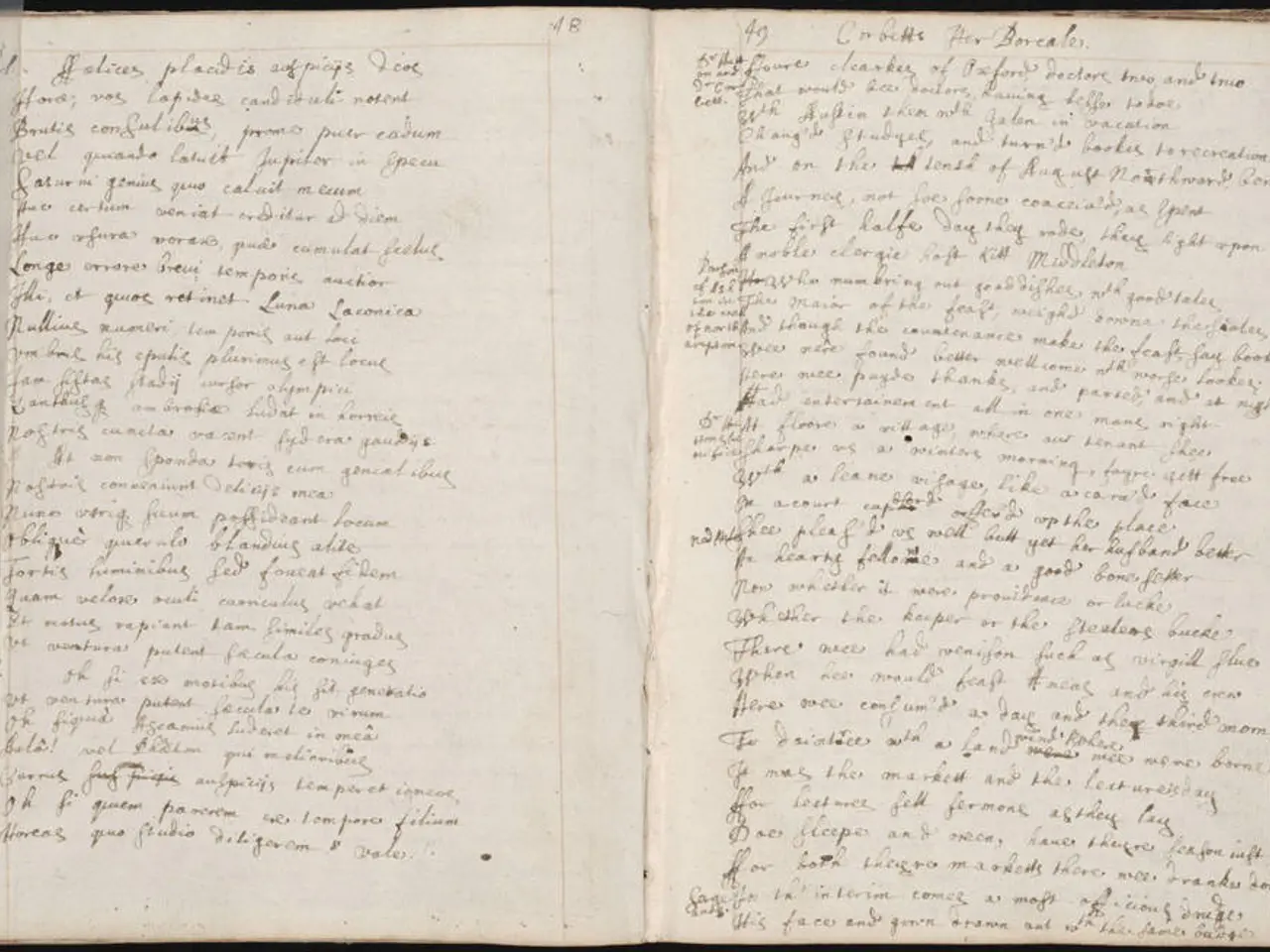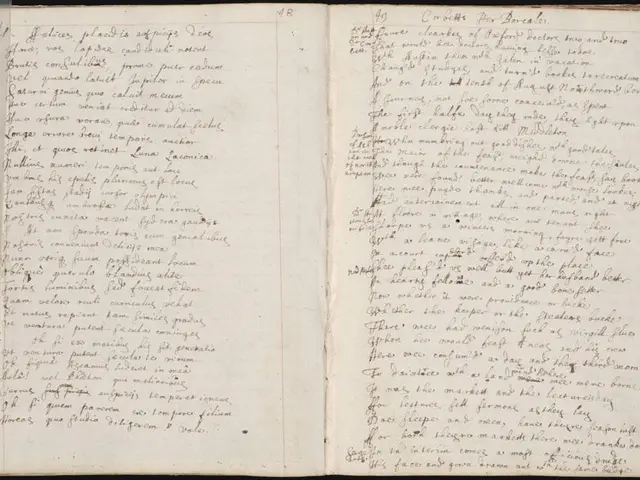Writers Entitled to Share Political Views?
In the dynamic world of literature, the intersection of politics and writing is a topic that continues to spark intrigue. Allison Maruska, a noted author, shares her thoughts on the matter, emphasising the importance of respecting others' political stances.
In today's climate, kind people can exist without openly expressing their political views, Maruska asserts. This viewpoint is particularly relevant as authors grapple with the question of whether expressing political opinions on social media could attract new readers.
Research suggests that political positioning can indeed act as a catalyst for book sales and reader interest. Books like "Fire and Fury" have demonstrated this effect, with political controversy and media coverage contributing to massive sales across various formats.
The power of social media is further leveraged in platforms where books are reviewed or discussed. Positive and negative opinions can raise a book’s visibility and boost sales by creating online buzz. Encouraging readers to share opinions through social media can build social proof, enhancing engagement further.
However, the media platforming of political views, especially extreme or polarizing ones, can normalize certain attitudes and change social perceptions. This, in turn, influences audience reception and engagement with authors' works. The presence of polarized political content may shape readers' interest or repulsion, affecting sales depending on the audience segment.
On a psychological level, political expressions may influence engagement by reinforcing community ties or creating controversy that draws attention. However, they may not necessarily change readers' core beliefs.
Not all authors are keen to wade into the political arena. Maruska, for instance, has chosen to keep her political opinions off public forums due to concerns about affecting her reputation as a writer. She has faced backlash and name-calling when expressing her views online, leading her to seek common ground or step away from online political discussions.
While politically charged nonfiction books may benefit from expressing opinions, fiction writers run the risk of alienating potential readers if they become too polarized. Maruska's books offer hints about her thoughts on issues such as Big Pharma, gay rights, GMOs, and profiling, but she leaves it to her readers to interpret and draw their own conclusions.
In the end, Maruska believes that actions speak louder than words when it comes to making a difference. She encourages her readers to focus on constructive actions such as contacting senators, signing petitions, voting, and supporting causes, rather than engaging in online bickering. She also suggests supporting specific groups with donations or volunteer hours if one disagrees with how "the other side" treats them.
As the world continues to grapple with political polarization, authors like Maruska offer a thoughtful perspective on the role of politics in literature. Her approach, which emphasises constructive action over heated debate, serves as a reminder that our words and actions carry weight, and that it's possible to make a difference without resorting to divisiveness.
[1] Vox Media, "Why Michael Wolff's 'Fire and Fury' is already a massive bestseller", 2018. [Accessed 2022-04-28]. https://www.vox.com/culture/2018/1/5/16875424/fire-and-fury-michael-wolff-bestseller
[2] The New York Times, "How ‘Fire and Fury’ Became a Best Seller", 2018. [Accessed 2022-04-28]. https://www.nytimes.com/2018/01/05/business/media/fire-and-fury-michael-wolff-bestseller.html
[3] The Guardian, "The effect of political polarisation on our mental health", 2018. [Accessed 2022-04-28]. https://www.theguardian.com/commentisfree/2018/jan/10/effect-political-polarisation-mental-health
[4] Psychology Today, "Why Do People Believe in Conspiracy Theories?", 2019. [Accessed 2022-04-28]. https://www.psychologytoday.com/us/blog/the-power-now/201906/why-do-people-believe-conspiracy-theories
[5] The Conversation, "Why do people share fake news? The psychology of social media", 2018. [Accessed 2022-04-28]. https://theconversation.com/why-do-people-share-fake-news-the-psychology-of-social-media-92954
Read also:
- Today's most impactful photographic moments
- Support for Eric Adams in The Post's Letters to the Editor on August 13, 2025
- Roosting Shark and Rambunctious Red Squirrels: Unconventional House Rental in Yorkshire Involving Aquatic Marvel, Squirrely Mayhem, and Mystical Planning Regulations
- Love, Work, and Friendship Harmonies between Aries Signs








